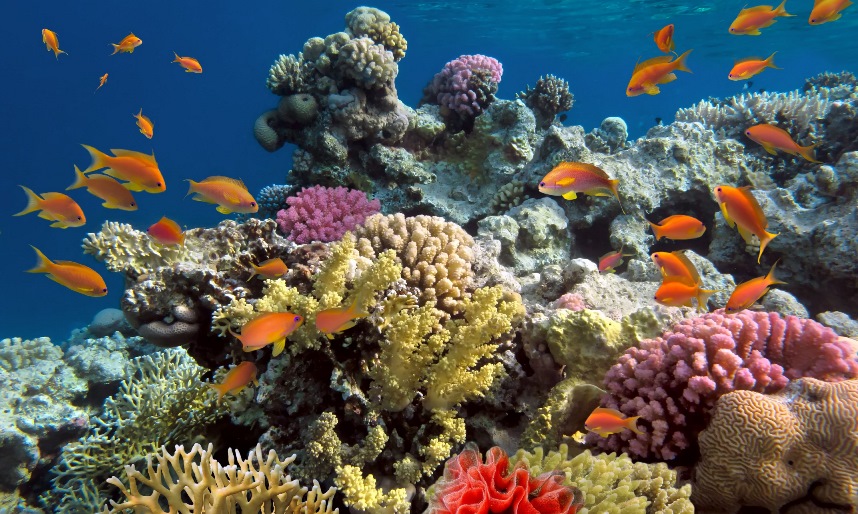On June 15, 2017 the UN Development Programme (UNDP) and the Cousteau Society signed a Memorandum of Understanding, to undertake a range of ocean-related joint and coordinated activities at the global, regional and national level.
Programs run by UNDP and the Cousteau Society share a number of geographic areas such as the Black Sea, Red Sea, and the Comoros Islands.
Signing the MoU on behalf of UNDP, Magdy Martínez-Solimán, UN Assistant Secretary General and Director of UNDP’s Bureau for Policy and Programme Support said: “Perhaps no name is more closely associated with ocean protection than that of Jacques Cousteau, whose incredible legacy is carried on through the work of the Cousteau Society. UNDP and the Cousteau Society both recognize that a healthy ocean is essential to poverty reduction and sustainable development. UNDP is honoured and privileged to join hands and work with the Cousteau Society.”
UNDP and the Cousteau Society share similar missions and see great benefit in cooperation between the two organizations. The MoU will enable the organizations to work together on oceans advocacy and awareness raising, marine ecosystem assessments, and tools and guidance on marine resource restoration and management.
Francine Cousteau, who signed the MoU on behalf of the Cousteau Society, said, “I thank UNDP and the devoted team for having shown confidence in our capacity to join forces to carry forward the work of Jacques Cousteau in the quest of excellence for the health of our Oceans and for the well-being of people on the water planet. On the eve of the twentieth Anniversary of Captain Cousteau’s passing, it is the most beautiful tribute we can offer to his work and to future generations, I am very enthusiastic and grateful.”
This signing took place following the historic Ocean Conference (June 5-9, 2017), held to mobilize action towards achieving the targets set for the UN‘s Sustainable Development Goal 14 (SDG 14), “Life Below Water“.
Jacques Cousteau, through his life and his work, was an early leader in the environmental movement. He was a naval officer, an explorer, conservationist, filmmaker, innovator, scientist, photographer, author and researcher.
Here are the SDG 14 goals:
- By 2020, sustainably manage and protect marine and coastal ecosystems to avoid significant adverse impacts, including by strengthening their resilience, and take action for their restoration in order to achieve healthy and productive oceans;
- By 2020, effectively regulate harvesting and end overfishing, illegal, unreported and unregulated fishing and destructive fishing practices and implement science-based management plans, in order to restore fish stocks in the shortest time feasible, at least to levels that can produce maximum sustainable yield as determined by their biological characteristics;
- By 2025, prevent and significantly reduce marine pollution of all kinds, in particular from land-based activities, including marine debris and nutrient pollution
Minimize and address the impacts of ocean acidification, including through enhanced scientific cooperation at all levels; - By 2020, conserve at least 10 per cent of coastal and marine areas, consistent with national and international law and based on the best available scientific information;
- By 2020, prohibit certain forms of fisheries subsidies which contribute to overcapacity and overfishing, eliminate subsidies that contribute to illegal, unreported and unregulated fishing and refrain from introducing new such subsidies, recognizing that appropriate and effective special and differential treatment for developing and least developed countries should be an integral part of the World Trade Organization fisheries subsidies negotiation;
- By 2030, increase the economic benefits to Small Island developing States and least developed countries from the sustainable use of marine resources, including through sustainable management of fisheries, aquaculture and tourism;
- Increase scientific knowledge, develop research capacity and transfer marine technology, taking into account the Intergovernmental Oceanographic Commission Criteria and Guidelines on the Transfer of Marine Technology, in order to improve ocean health and to enhance the contribution of marine biodiversity to the development of developing countries, in particular small island developing States and least developed countries;
- Provide access for small-scale artisanal fishers to marine resources and markets;
- Enhance the conservation and sustainable use of oceans and their resources by implementing international law as reflected in UNCLOS, which provides the legal framework for the conservation and sustainable use of oceans and their resources, as recalled in paragraph 158 of The Future We Want.
Photo of Red Sea reef via Adobe Stock.

